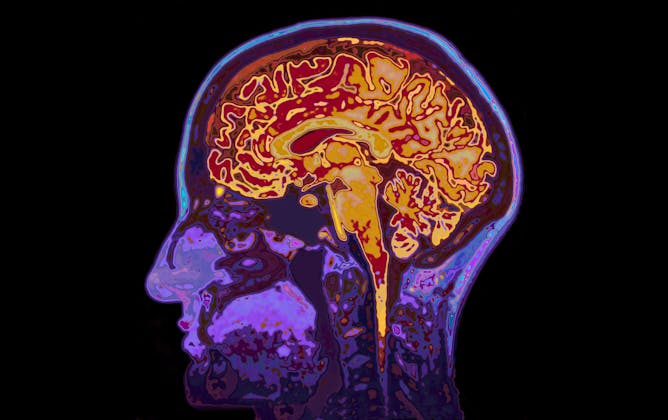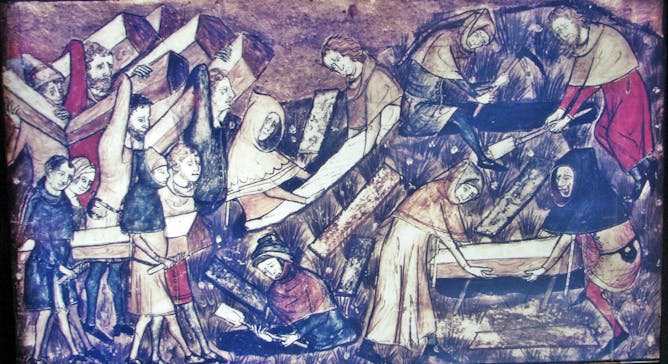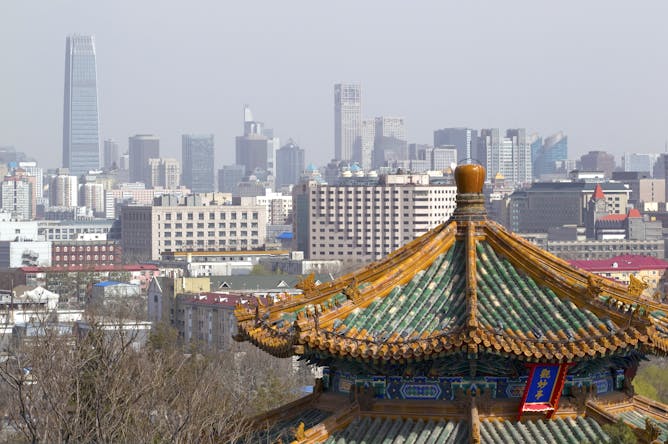|
|
|
Editor's note
|
|
The human brain is a fascinating organ. It controls everything that happens in your body, from breathing, organ function and movements, to thought, behaviour and emotions. It even helps us create memories. But as important as the brain is, we often know far less about it than perhaps we should.
For example, did you know the brain doesn’t have any pain receptors? This is why surgeons can remove tumours from a patient’s brain without causing them any discomfort. Or maybe you didn’t know that Broca’s area, located in the frontal lobe, is specifically responsible for language production and comprehension?
An anatomy expert shares these and other amazing facts that might help you become better acquainted with your grey matter.
A team of experts has been looking at the global consequences of the Black Death, which might offer us some clues about managing coronavirus. We’ve also learned how China’s history of urban governance has
made lockdown possible.
And in the third and final episode of our podcast series “Medicine made for you”, the team looks at whether 3D printing drugs will be able to provide patients with personalised, individualised medicine dosages, and if “social prescribing” is the future of mental health treatment.
|
Heather Kroeker
Assistant Section Editor
|

|
|
Top stories
|

We’re still learning about the human brain.
SpeedKingz/Shutterstock
Adam Taylor, Lancaster University
Even though the brain controls virtually everything we do, we often know very little about it.
|

Miniature by Pierart dou Tielt
Adrian R. Bell, University of Reading; Andrew Prescott, University of Glasgow; Helen Lacey, University of Oxford
A look back at history can help us consider the economic effects of public health emergencies and how best to manage them.
|

oksana.perkins/Shutterstock
Toby Lincoln, University of Leicester
Local residents' committees control urban governance in China, meaning lockdown measures do not feel imposed from outside.
|

everything possible/Shutterstock
Annabel Bligh, The Conversation; Gemma Ware, The Conversation; Holly Squire, The Conversation
PODCAST: The third part of a series from The Anthill podcast on how personalised medicine may become in the future.
|
Environment + Energy
|
-
Keith Hyams, University of Warwick; Morten Fibieger Byskov, University of Warwick
Our research has brought us into contact with multiple communities whose lives are increasingly precarious thanks to climate change.
|
|
Education
|
-
Catherine Lee, Anglia Ruskin University
Research has found that 64% of LGBT teachers have experienced a serious episode of anxiety or depression linked to their sexual or gender identity and role as a teacher.
|
|
Health + Medicine
|
-
Grahame Hardie, University of Dundee
Cordyceps fungi that turn insects into "zombies" produce a compound that might be useful for treating cancer.
|
|
Science + Technology
|
-
Shahla Ghobadi, University of Leeds
Precocious social media users want to use technology to change the world.
|
|
Politics + Society
|
-
Alexander Cohen, Clarkson University
Despite the fact that only 38% of Americans say they think the Democratic and Republican parties are doing 'an adequate job,' they're unlikely to disappear.
-
Thomas O'Loughlin, University of Nottingham
This centuries-old argument over doctrine needs to change and we have a pope who wants that to happen.
|
|
| |
Featured events
|

|
Bowland Auditorium, Berrick Saul Building, Campus West, York, York, YO10 5DD, United Kingdom of Great Britain and Northern Ireland — University of York
|

|
Bowland Auditorium, Berrick Saul Building, Campus West, York, York, YO10 5DD, United Kingdom of Great Britain and Northern Ireland — University of York
|

|
G10, Palmer building, Whiteknights campus, University of Reading, Reading, West Berkshire, RG6 6UR, United Kingdom of Great Britain and Northern Ireland — University of Reading
|

|
East Road, Cambridge, Cambridgeshire, CB11PT, United Kingdom of Great Britain and Northern Ireland — Anglia Ruskin University
|
|
|
|
| |
| |
| |
| |
| |
|
|
|
|
|
|
|